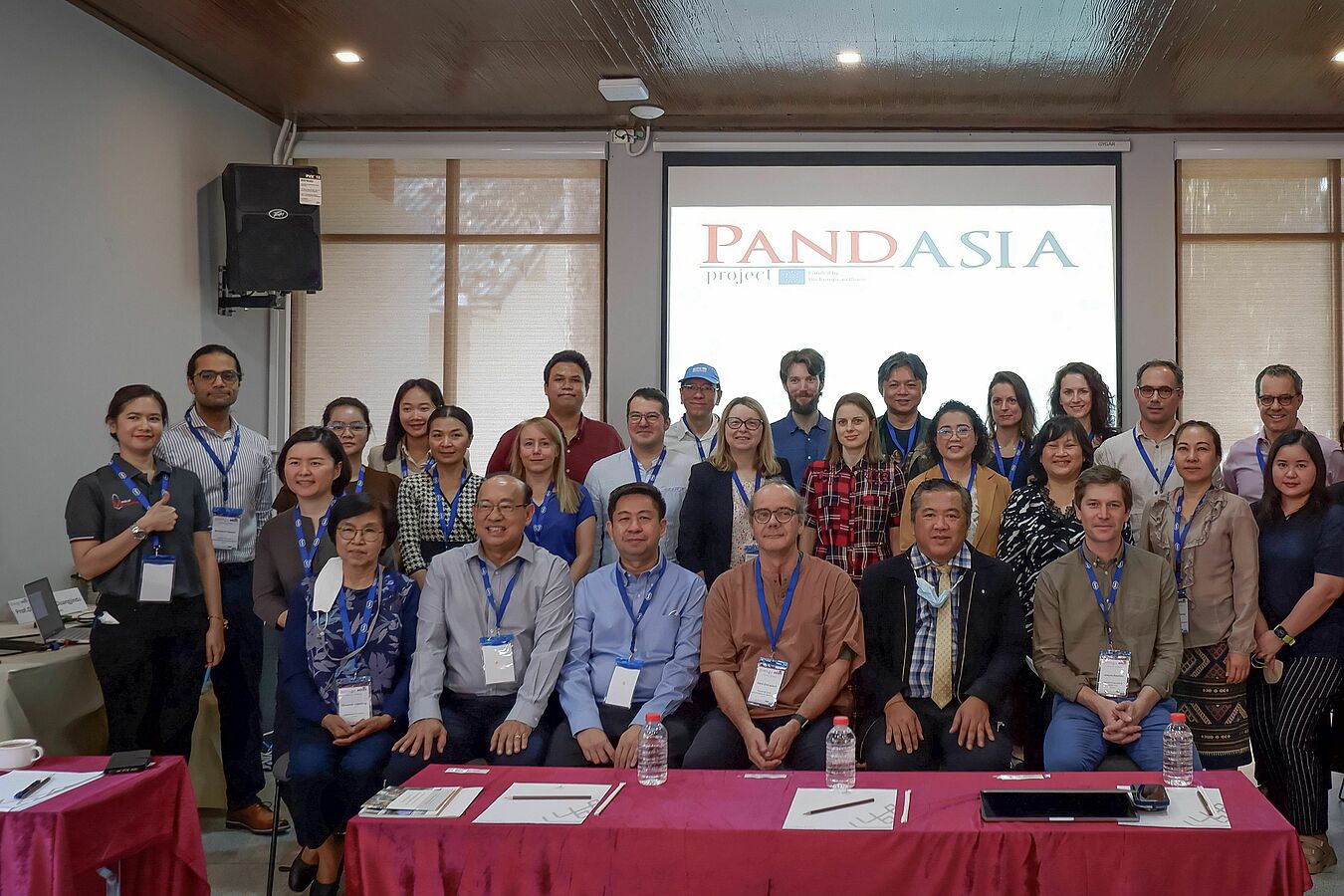The PANDASIA project investigates how infectious diseases are transmitted between animals, humans and environment and how potential pandemics emerge. The findings will be used to enhance health literacy in different target groups in Thailand and Europe.

PANDASIA-Kock-off-meeting | Photo: PANDASIA-Project
Emerging infectious diseases, which are caused by zoonotic pathogens such as viruses and bacteria are transmitted between animals and humans, pose an increasing threat to global health. Zoonoses occur primarily where wild animals and humans come into regular contact. Owing to its species diversity, human population density, and movement, Southeast Asia is considered as hotspot for the emergence of new zoonoses and subsequent pandemics. Climate change and loss of biodiversity accelerate the risk of new pandemics. The EU-funded, transdisciplinary scientific project PANDASIA investigates potential risks of new pandemics in Thailand and develops preventive measures. Findings will be used to enhance health literacy of different target groups and communities.
From 13-17 February 2023, the Kick-Off-Meeting of the EU PANDASIA project took place in Khon Kaen in north-eastern Thailand. Hans J Overgaard, the project coordinator from the Norwegian University of Life Sciences, says: "How does a local pandemic develop into a global threat and how can this process be avoided or stopped in time? PANDASIA is a new, transdisciplinary EU project by universities and research institutions in Europe and Thailand with the aim of investigating the origin of pandemics guided by the 'One Health' approach. This transdisciplinary approach applies human, animal and environmental health and social science".
Biologists, veterinarians, mathematicians, sociologists and human medical doctors from Norway, Sweden, United Kingdom, Germany, and Thailand are working closely together to understand the dynamics of so-called zoonotic "spillover infections" and to develop a predictive framework with effective preventive measures. PANDASIA will collect data from local communities in Thailand to determine their exposure to wildlife and livestock. Biodiversity specialists will sample the relevant biodiversity which virologists will then examine for viruses that have the potential to spill over to humans. Based on these data, models will be developed which aim to predict the future risk of the spread of new infectious diseases.
A pandemic preparedness and prevention literacy (3PL) intervention will be developed, implemented and tested to improve the knowledge and practices of local communities and to reduce and prevent possible zoonotic transmission from animals to humans, thus reducing the risk of local outbreaks becoming global pandemics. Since pandemics first occur at the local level, it is extremely important for the scientists of this project to work closely with local government units and communities, non-governmental organisations and environmental and agricultural authorities in Thailand to improve their pandemic health literacy. The consortium partners of the PANDASIA project aim to expand their current understanding of the drivers of emerging infectious diseases and the interaction of viruses between humans, animals and the environment.
The PANDASIA project is funded by the EU HORIZON.2.1 - Health programme "European Union Research and Innovations Actions" (https://cordis.europa.eu/project/id/101095444). This programme explores new technologies and new methods or improve existing ones. PANDASIA is coordinated by the Faculty of Science and Technology of the Norwegian University of Life Sciences (NMBU) and includes the following consortium members:
- Norwegian University of Life Sciences (NMBU)
- Norwegian Veterinary Institute (NVI)
- Khon Kaen University (KKU)
- Leibniz Institute for Zoo and Wildlife Research in Berlin (Leibniz-IZW)
- Universitätsklinikum Heidelberg (UKHD)
- Queen Mary University of London
- Center of Excellence for Emerging and Re-emerging Diseases in Animals (CU-EIDAs) at the Faculty of Veterinary Science
- Chulalongkorn University (CU)
- Umeå University
- Faculty of Environment & Resource Studies, Mahidol University (MU)
- SUPA71 Co., Ltd.






